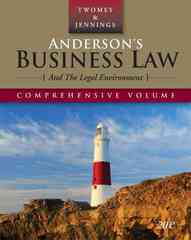Business Week magazine is sent to a national distributor of magazines, Curtis Circulations Co., which sells the
Question:
Business Week magazine is sent to a national distributor of magazines, Curtis Circulations Co., which sells the magazines to various wholesalers, including Hudson News. Business Week publishes a column entitled “Inside Wall Street,”
and the evidence shows that stocks discussed favorably in the column tend to increase in value after release to the public. Business Week has a strict confidentiality policy prior to release of the magazine to the public applicable to all employees involved in production and distribution. This policy also applies to Hudson News. Gregory Savage, an employee of Hudson News, and the “top person” in the delivery room area, arranged to have the “Inside Wall Street”
column faxed to his neighbor, a stockbroker named Larry Strath, prior to the close of the market on Thursday and prior to release to the public that evening.
Strath traded on the information and passed it on to Joseph Falcone, who likewise traded on the basis of this information. While Falcone paid Strath
$200 for a copy of the column each week, he contends that the information he received was too remote from the Business Week confidentiality policy to be actionable by the SEC. What theory do you believe the SEC pursued against Falcone? What are the elements of the theory? How would you decide this case?
[United States v Falcone 257 F3d 226 (2d Cir)]
1106 Part 7 Business Organizations AppendixLO1
Step by Step Answer:

Anderson's Business Law And The Legal Environment
ISBN: 9780324638189
20th Edition
Authors: David P Twomey, Marianne M Jennings, Ivan Fox





